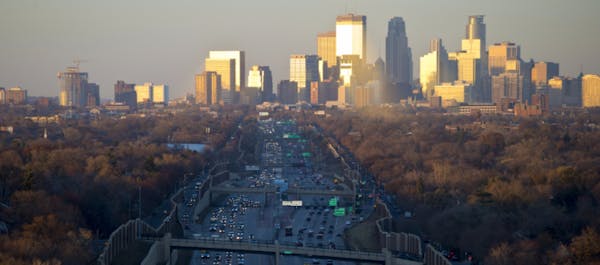WASHINGTON – Jessie Diggins traveled from her home in Afton, Minn., to La Clusaz, France, in December 2016 to compete in a world-class cross-country ski race. Diggins, the 2018 Olympic gold medalist, could not believe what she saw when she arrived.
Townspeople had to hack chunks of ice from a frozen lake and cover them with man-made snow in order to create a course.
The result, Diggins told congressional staffers listening to a presentation on climate change, was "grass with a ribbon of snow."
Diggins' story was one of many presented by Winter Olympic athletes who gathered on Capitol Hill Wednesday to describe how climate change is shortening winters and melting snow in ways that affect the environment and the economy, as well as athletic competitions.
"We are the canaries in the coal mine," Diggins said, referring to birds once used to tip off miners to dangerous gases. "We see it first."
The athletes who spoke at the gathering arranged by Republican Sen. Susan Collins of Maine and Democratic Sen. Michael Bennet of Colorado were the cream of the crop from the 2018 Winter Games in South Korea.
They all told stories of how reduced snowfall had hurt their ability to train and compete.
Colorado snowboarder Arielle Gold told of suffering a shoulder injury that she said was partly caused by poor snow conditions. "I was injured on a trick I can usually do in my sleep," Gold said.
The athletes spoke as well about the blows to the environment and economy that come with shorter winters. Tourism in colder climates often depends on snow, and small ski towns live or die by its accumulation, Alpine skier Stacey Cook said. The number of sites capable of hosting the Winter Olympics is also shrinking as snowfall recedes, the athletes said.
Diggins recalled a cross-country ski route that once covered hundreds of kilometers in the mountains of Italy. It has now been reduced to a 2-kilometer circuit of man-made snow, she said.
Before speaking, Diggins met with Sen. Amy Klobuchar, D-Minn., and accompanied her to hear French President Emmanuel Macron address a joint session of Congress. He urged the U.S. to rejoin the Paris climate accord from which President Donald Trump withdrew the country.
Diggins was set to meet with Democratic Sen. Tina Smith and Republican Rep. Erik Paulsen of Minnesota to express her concerns.
"It shouldn't be a political issue," Diggins told the Star Tribune in an interview. "It's our planet we're trying to save."
The athletes appeared at an event organized by the Citizens' Climate Lobby, a nonpartisan group that educates the public about the environmental impact of climate change, and Protect Our Winters, a nonprofit that bills itself as "professional athletes and industry brands mobilizing the outdoor sports community to lead the charge toward positive climate action."
Bennet, who hosted the event, spoke briefly and answered questions. The Colorado senator noted his state's dependence on winter sports as an economic engine. But given the rise to power of some who deny man-made climate change and others who want to roll back requirements for fuel efficiency, Bennet stressed the need to "build a durable coalition" around the scientific consensus that "climate change is real."
Diggins said she believes the stakes are enormous for her and the generations that follow.
"It needs to be everyone's issue," she said. "You don't get any do-overs."
Diggins was not Minnesota's only Olympian in the nation's capital. On Tuesday night, curling gold medalist John Shuster and his wife, Sara, attended a state dinner hosted by Trump and honoring Macron.

